From childhood, Caleb Ester felt different. An only child, his dad wasn't around, and his mom was busy finishing college and working two jobs. Caleb had a loving family, including grandparents who pitched in to care for him, but Caleb spent a lot of time home alone.
"Around middle school, I was trying to figure myself out," he says. "I got chunky for about three or four years, and I got insecure."
Desperate for companionship and acceptance, Caleb was befriended by some older teenagers. They exposed him to drugs and images he had never seen before.
"My whole life just changed because I started hanging with the wrong people," he says. "None of them had any good intent, and it was just a downward spiral of years and years and years. I was chasing behind people, trying to find my own identity."
A DOWNWARD SPIRAL
At first, Caleb thought he could be a good influence on his friends by welcoming them into his home. But his desperation for acceptance meant he acquiesced to whatever they suggested.
By 17, Caleb was on probation for buying a stolen motorcycle. A few years later, he was arrested on drug charges and went to jail for 10 months. In jail, Caleb decided to get his act together, but when he got out, he went right back to his familiar friends and habits. He would do whatever it took to "look a certain way in the world, to look powerful."
One night, Caleb was out at a club with friends when one asked for a ride to a nearby apartment. Someone there owed Caleb's friend money, and he was tired of waiting. Caleb dropped him off and was about to drive away. But a bad feeling made him hesitate.
"Six seconds, and my life changed," Caleb says.
A gun was fired, and a man was killed. Caleb panicked and fled. A few days later, even though Caleb had not fired the gun, he was picked up by the police and sentenced to 18 years in prison under Texas' "law of parties" statute.
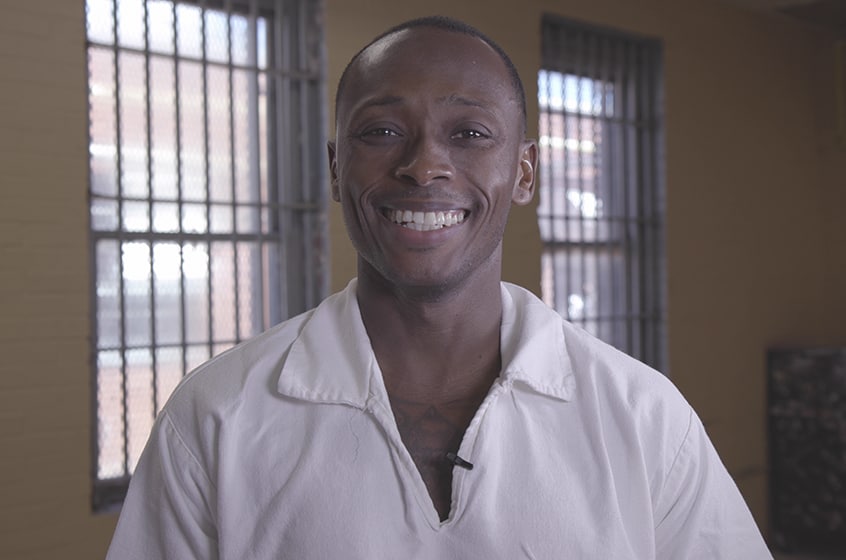
WHAT IS THE 'LAW OF PARTIES' STATUTE?
Texas' "law of parties" statute says that a man or woman can be held criminally responsible for the actions of another under certain circumstances. Someone may be found guilty under the "law of parties" if they encourage, assist, or do not "make a reasonable effort" to stop a person committing a crime.
'Six seconds, and my life changed.'
AN IDENTITY UNRAVELED
Caleb was incarcerated in September 2007. Three months later, his daughter Calyn was born. It broke his heart to know she would grow up without him. He wrote her cards and letters, struggling to connect.
Seven years later, Caleb was shocked to learn he was also father to 8-year-old twin boys. Though they had been living in his neighborhood before he was imprisoned, Caleb never met the boys and had had no idea they existed.
"It almost crushed me, because I didn't have a dad, so I would never be a person who shuns their child," he says. He began trying to build a relationship with the boys as well. But despite his efforts to be a good father, Caleb's main concern was still impressing others.
"It's hard out in the streets and in prison because everybody wants to take from you," he explains. "You feel like you have to be a certain way so nobody will play you."
But Caleb's pursuit of power and respect was about to come to an end.
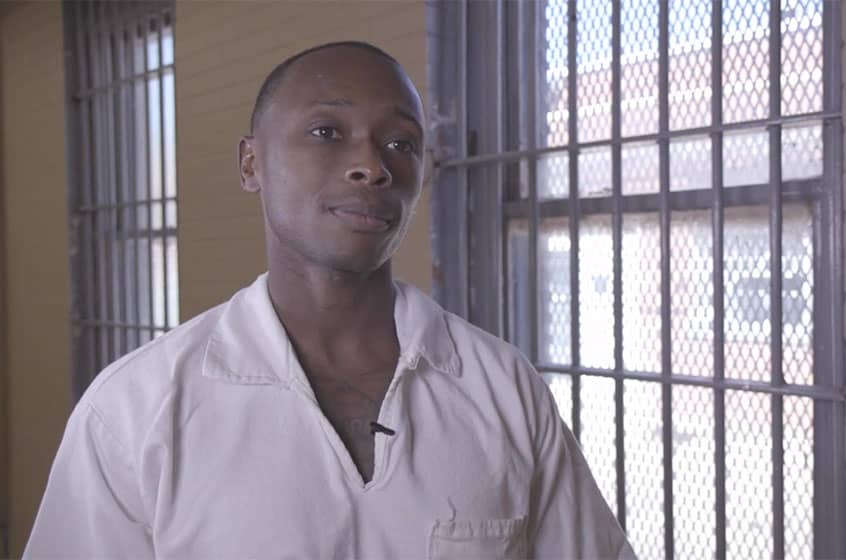
'It's hard out in the streets and in prison because everybody wants to take from you. You feel like you have to be a certain way so nobody will play you.'
BECAUSE HE CALLED MY NAME
In 2017, Caleb was transferred from the Wallace Unit to the Carol S. Vance Unit in Fort Bend County, Texas. There he joined Prison Fellowship Academy®, an in-prison program that uses targeted curriculum, compassionate coaches, and restorative community to replace participants' criminal thinking and behaviors with renewed purpose and biblically based life principles.
At the Academy, Caleb encountered prisoners and volunteers who were free of the transactional relationships and self-protection Caleb was used to.
"I found out it's all right to be truthful," Caleb says. "It's all right to just love on people. It's all right to be a friend without any extra entanglements, entrapments, or anything else."
This different way of relating to others, Caleb realized, came from finding self-worth and identity in God.
"I had to believe that what God gave me for my life was enough," Caleb says. "I had to really believe that I'm enough. Not being like anybody else, having this, having that—none of that matters. I am enough because He called my name."
PARENTING IN PRISON
While at Carol Vance, Caleb learned about Prison Fellowship Angel Tree™, a program that connects incarcerated parents with their children through the delivery of a gift at Christmastime. Caleb loved being able to choose gifts and write personal messages to communicate his love.
Caleb also participated in a prisoner-run program called "Storybook Dad." He recorded himself reading The Jungle Book so that Calyn could listen to his voice each night. She would visit him for Angel Tree parties (events usually held at sponsoring churches but in this case, within the prison), and steadily, their bond grew stronger. A couple of times, his sons came to "Day with Dad" events. At these special annual events, Prison Fellowship® volunteers bring music, bounce houses, face painting, tug of war, and basketball to the prison yard so kids can enjoy a day of fun with their fathers.
'I had to believe that what God gave me for my life was enough. I had to really believe that I'm enough. ... I am enough because He called my name.'
A LIFE RESTORED
Caleb was released in 2019. At first, he lived with family and worked for his uncle. One day, he got a message on Facebook from Brandon Johnson, another Academy graduate whom he had known at both Wallace and Carol Vance. Brandon, a manager at a commercial sign company, has a heart to give other returning citizens a second chance. To date, he has offered jobs to 12 Prison Fellowship Academy graduates.
"I hire them because of the character I know in them," Brandon explains. "We were all in the program together, went through the struggle together. There are a lot of places that don't hire us. God opened this door for me, so I have to open this door to other people. I knew that Caleb was dependable and responsible."
Not all returning citizens have an employer who knows their character and is willing to hire them. In fact, people with a criminal record currently face 44,000 legal collateral consequences—severely limiting their employment and other opportunities.
Caleb is thriving in this company; he was recently promoted and leads a team of installers. But he has his sights on other goals, too. Soon he will take a class to obtain his commercial driver's license and plans to start his own trucking company. Eventually, Caleb hopes to go back to school for a counseling degree and become a professional counselor.
Instead of trying to draw his self-worth from others, Caleb now pours himself out in love. He is deeply committed to Calyn, who lives with him, and to his sons, whom he sees often. Being a father of teenagers has been a challenge. But Caleb says he benefits from the support of other men, especially other Academy graduates and Prison Fellowship staff.
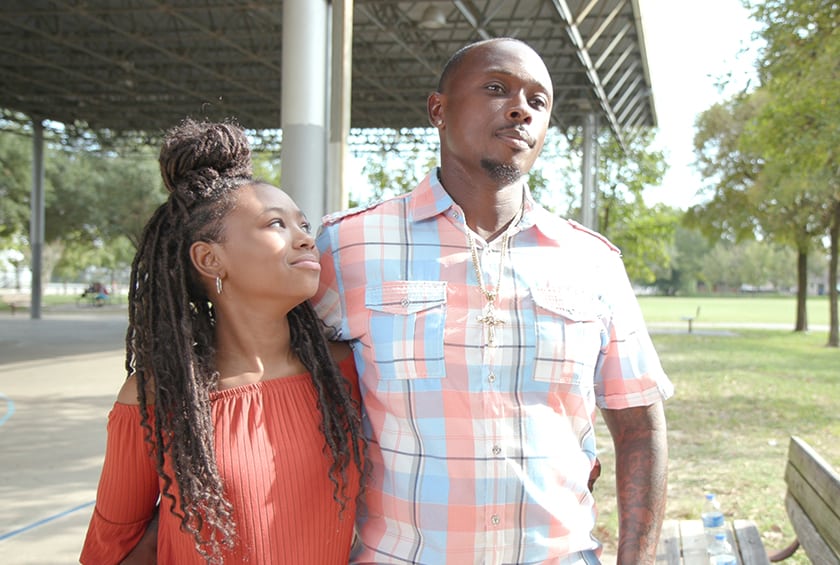
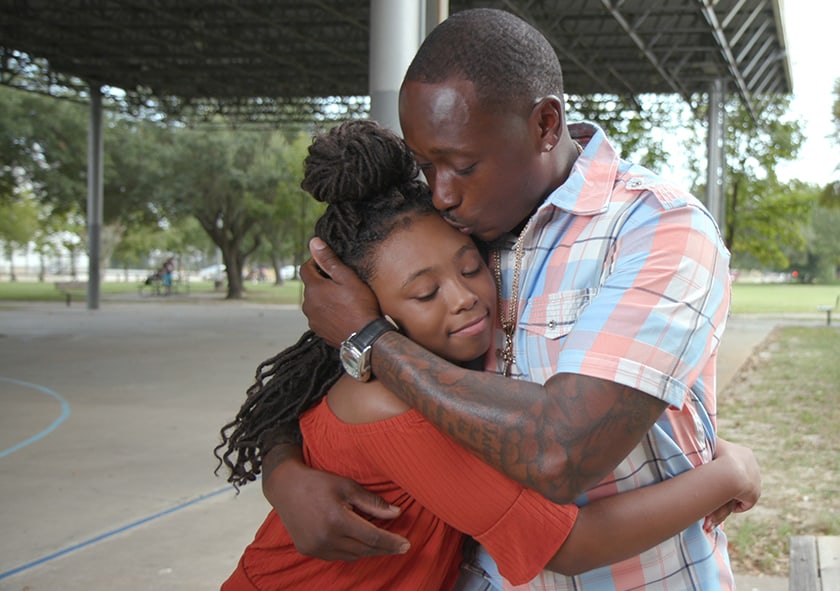
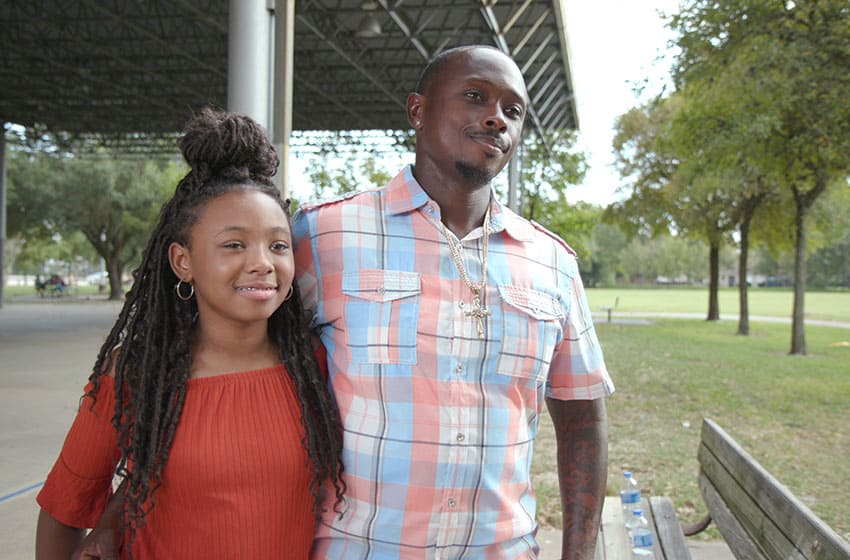
'God opened this door for me, so I have to open this door to other people.'
GETTING OUT OF THE WAY
When Caleb was first released, some of his old acquaintances reached out. One even approached him at the parole office to see if he wanted to sell drugs. But for Caleb, going back to such a lifestyle is unthinkable.
"It turns my stomach to think about hurting my family and the people around me who depend on me," he says. "I'm past the phase of wanting this or wanting that. I'm stable and happy, [thankful for] what God has given me, and believing in Him. The whole time I've been out, I've gotten out of His way. I just got out of His way, and God's been working and working."
'The whole time I've been out, I've gotten out of His way. I just got out of His way, and God's been working and working.'